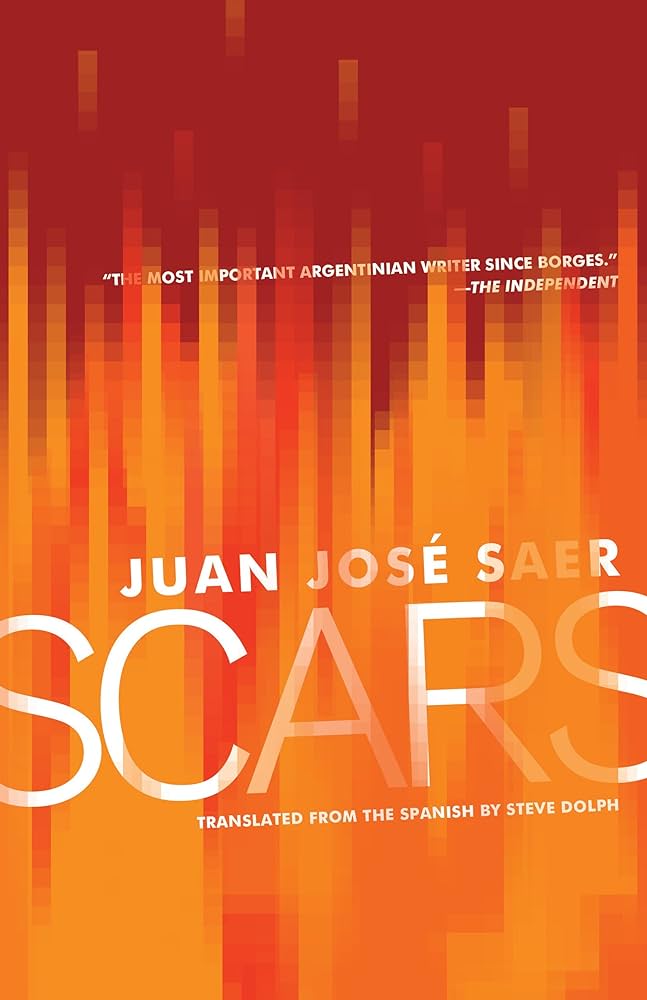Santa Fe, 1963. A metalworker shoots his wife to death on Labor Day. That crime becomes the invisible thread connecting four intertwined stories: a young journalist obsessed with the case, a gambler-lawyer on the verge of collapse, a judge trapped by his repressed sexuality, and the killer himself, scarred by frustration and defeat. A powerful drama and a landmark of Argentine literature.
On May 1st, 1963—Labor Day—Luis Fiore, a metalworker in the Argentine city of Santa Fe, murders his wife with a shotgun blast. The crime becomes the silent epicenter of four parallel stories, each told through the eyes of a man connected to the case. Hovering over it all is the oppressive atmosphere of a military dictatorship that never needs to show its face to be felt.
Ángel Leto is a young aspiring journalist and a fan of detective fiction. His life is marked by a tense, oedipal relationship with his mother. Through the intervention of eccentric writer Carlos Tomatis, who becomes his mentor, Ángel lands a job at La Región newspaper covering the courts. There, he meets criminal court judge Ernesto Garay and is drawn into the case of Luis Fiore. Obsessed, Ángel follows the trial closely, eventually witnessing Fiore’s suicide during an interrogation led by Garay himself.
Sergio Escalante, a disillusioned lawyer addicted to gambling, embodies the thrill of self-destruction. Consumed by vice, he gambles away everything he owns—including his house—under the neon lights of underground poker dens, lost in a haze of smoke and compulsion. He even risks the savings of his housekeeper. Though he once shared a political past with Fiore’s wife, he refuses to defend Fiore, paralyzed by a blend of cynicism, political disillusionment, and collapse.
Ernesto Garay, the judge handling the case, is an intellectual tormented by his repressed homosexuality in a conservative society and a suffocating regime. Divorced and isolated, he finds solace in literature, obsessively translating The Picture of Dorian Gray, which becomes a mirror of his own contradictions and hidden desires. As he navigates the Fiore case, he also struggles with his growing admiration—and desire—for Ángel Leto.
And finally, Luis Fiore himself. A former union man and nostalgic for a better past, Fiore is now a bitter, broken man, betrayed by a system that crushed him. In his twisted view, his wife has become a source of humiliation and pain. One seemingly ordinary hunting day, Fiore snaps—and shoots her dead.
Four distinct perspectives on a single crime. Four stories of fragile men haunted by trauma, obsession, and their own unraveling.
RELEVANT INFORMATION: Juan José Saer is widely regarded as one of the most influential Spanish-language writers of the 20th century. Born in Argentina, he authored twelve novels, four essay collections, five short story books, and a volume of poetry.
Scars (Cicatrices), first published in 1969, is among his most iconic works and a cornerstone of modern Argentine literature. It’s a complex, fragmented novel in which character development far outweighs the central crime. Each protagonist is deeply flawed and obsessively introspective, making the novel emotionally intense and socially charged.
Though rooted in a specific time and place, Scars explores universal themes of power, masculinity, repression, and societal decay—making it highly adaptable to other cultural contexts.
The novel was previously adapted into a feature film in 2001, directed by Patricio Coll and produced by INCAA and Juan Carlos Fisner. However, film and television rights are currently available.
AUDIOVISUAL POTENTIAL: TV Series, Limited Series, Feature Film, TV Movie.
AVAILABLE LANGUAGES: Spanish, English, French, Italian, Portuguese, Turkish.

Adquirir los derechos
Para ponerte en contacto con nosotros completa el siguiente formulario y te responderemos en breve.
Error: Contact form not found.

